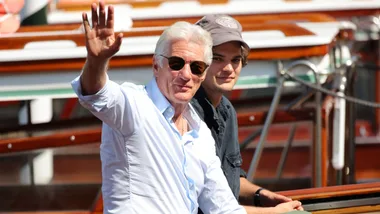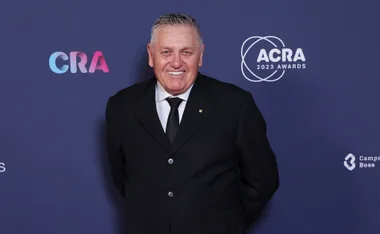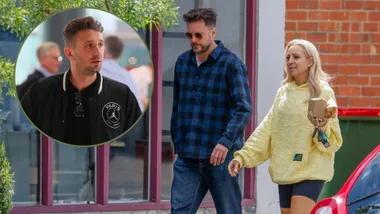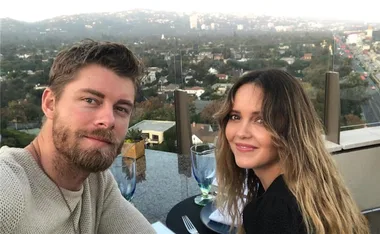White marquees stood amidst lush gardens, like giant meringues. People sat around a lake feeding the ducks and reading. There was a star line-up of authors, some swooping bats and lots of spicy gossip drifting through the sweet, tropical air at the fifth Byron Bay Writers Festival .
For those who couldn’t attend, here are a few snapshots taken over three days at the festival:
Seen on arrival in the main street of Byron Bay, a cyclist wearing a large pair of silver wings.
Repelled on the paths back to the cabins at night, bats that have made their home in the at gardens at The Byron Bay Beach Club, site of the festival.
Much talked about, was the Gerard Henderson/ Mungo McCallum debate Are We Becoming Less Political? Highlights included Mungo ripping open his shirt to reveal a Lenin T-shirt.
Applause greeted the announcement that festival guest author, Helen Garner, had just become a grandmother. Helen also surprised many in the audience with her admission that apart from re-reading Crime and Punishment recently, she hardly ever reads any fiction.
Interest aroused by Marele Day’s news that she is writing a book about Mrs Cook, the real and imagined life of Captain James Cook. Marelle is the author of the Claudia Valentine mysteries and Lambs of God.
Loved Michelle de Kretser’s rose blouse and her anecdote about how she came across the idea behind her bestseller: Announcing she would not work for a year, Michelle told friends she would devote herself to cooking and gardening. They gave her roses. Knowing nothing about them, Michelle began researching and discovered among other facts, that the dark red rose did not exist prior to the French Revolution. This discovery sewed the seed for her exquisite book, The Rose Grower.
Secrets revealed in a session titled Is Popular Good? Matthew Reilly, the enfant terrible of publishing (at 26 he’s written numerous bestsellers with several of his titles the subject of a Hollywood bidding war), said the key to the breakneck speed in his writing can be found in the way he links his sentences. Matthew’s latest book is Area 7.
Di Morrissey’s cocktail party, held on a balmy night in the candle-lit gardens at her home in Byron Bay was a great hit. A visit from the local wildlife in the shape of a rabbit bounding through the groups of gathered scribes and publishing types, added excitement. Di, a warm and gracious hostess, looked gorgeous in pale pink, her tiny dog, Bunya, wearing a matching pink bow on her top-knot.
The Best Behaved Baby award of the festival went to Sarah, the 6 month old daughter of children’s author Andy Griffiths. She was carried about everywhere at the festival by her mother, Sarah who is a book editor. Andy is the author of the award winning ‘Just’ series for children. His latest book, is The Day My Bum Went Psycho (Pan Macmillan).
Newsletter conversion description. Get the latest in your inbox.

.png?resize=380%2C285)
.jpg?resize=380%2C285)




.png?resize=380%2C285)













